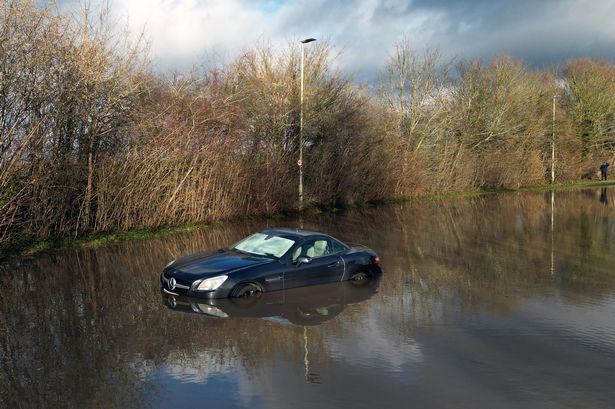The United Kingdom is bracing itself for a prolonged period of severe winter weather, as an Arctic blast continues to grip the nation, bringing with it a trifecta of icy conditions, heavy snowfall, and the looming threat of flooding. This confluence of meteorological challenges has created widespread disruption, particularly for road users, and has prompted urgent warnings from both the Met Office, the UK’s national weather service, and the Environment Agency, responsible for flood management. The immediate impact is being felt across numerous sectors, including transportation, infrastructure, and daily life, with the potential for more significant consequences as the cold snap persists.
The icy conditions, a product of plummeting temperatures and persistent precipitation, are causing treacherous driving conditions across much of the country. Roads and pavements are becoming dangerously slick, leading to an increased risk of accidents. The Met Office has issued widespread ice warnings, urging caution and advising against unnecessary travel. Black ice, particularly insidious due to its invisibility, poses a significant hazard, especially during the early morning and evening hours when temperatures are at their lowest. Transport authorities are grappling with the challenges of maintaining safe road networks, gritting major routes and advising drivers to exercise extreme care, reduce speed, and maintain a safe distance from other vehicles.
Heavy snowfall is exacerbating the already challenging conditions. Accumulations of snow are causing road closures, train cancellations, and disruptions to air travel. Many schools and businesses have been forced to close, further impacting daily life and economic activity. The weight of the snow is also placing strain on infrastructure, particularly power lines and roofs, leading to concerns about potential power outages and structural damage. Emergency services are working tirelessly to respond to incidents and ensure the safety of the public. The combination of ice and snow is creating a perfect storm for travel disruption, with commuters facing significant delays and cancellations.
Adding to the complexity of the situation is the escalating risk of flooding. The combination of melting snow and heavy rainfall is causing rivers and waterways to swell, increasing the likelihood of flooding in low-lying areas. The Environment Agency has issued numerous flood warnings and alerts, urging residents in affected areas to take precautionary measures to protect their homes and businesses. Flood defenses are being deployed in vulnerable locations, and emergency response teams are on standby to assist those affected by flooding. The threat of flooding adds another layer of concern for communities already grappling with the challenges of ice and snow.
The prolonged nature of this Arctic blast is a significant factor in the severity of the situation. The sustained period of freezing temperatures and precipitation is creating cumulative impacts, with each day adding to the challenges faced by individuals and communities. The ongoing strain on infrastructure, transport networks, and emergency services is a growing concern. The prolonged cold snap is also having an impact on vulnerable populations, including the elderly and those experiencing homelessness, who are particularly susceptible to the health risks associated with extreme cold weather.
The UK is facing a multi-pronged weather-related crisis, with ice, snow, and flooding converging to create a challenging and potentially dangerous situation. The coordinated efforts of the Met Office, the Environment Agency, and emergency services are crucial in mitigating the impacts of this severe weather event. The public is being urged to heed warnings, exercise caution, and prepare for the ongoing challenges posed by this prolonged Arctic blast. The combined threat of these weather hazards underscores the importance of preparedness and resilience in the face of increasingly unpredictable and extreme weather events. The economic and social repercussions of this weather event are likely to be significant, requiring a concerted response from government and communities to address the immediate and long-term consequences.














